The wind has been howling all night long. Not a tropical wind like you would expect in northern Thailand. No, it is a cold wind, the kind that makes you uneasy. The old, carved window shutters bang and clank against the adobe walls of my room.
I roll over and check the time. 5:30am, it reads. Another two hours until the sun breaks the top of the mountains. I throw on more layers than the tropics should ever require you to put on and venture out into the dim pre-dawn light.
The mountains to the west are just beginning to catch the dawn as the world wakes up. These mountains of northern Thailand are small ripples of what becomes the largest mountain range in the world: the Himalayas.
Tucked into these foothills, on a road that snakes past the towering peak of the Chiang Dao mountain and into Burma, sits Pun Pun Farms.
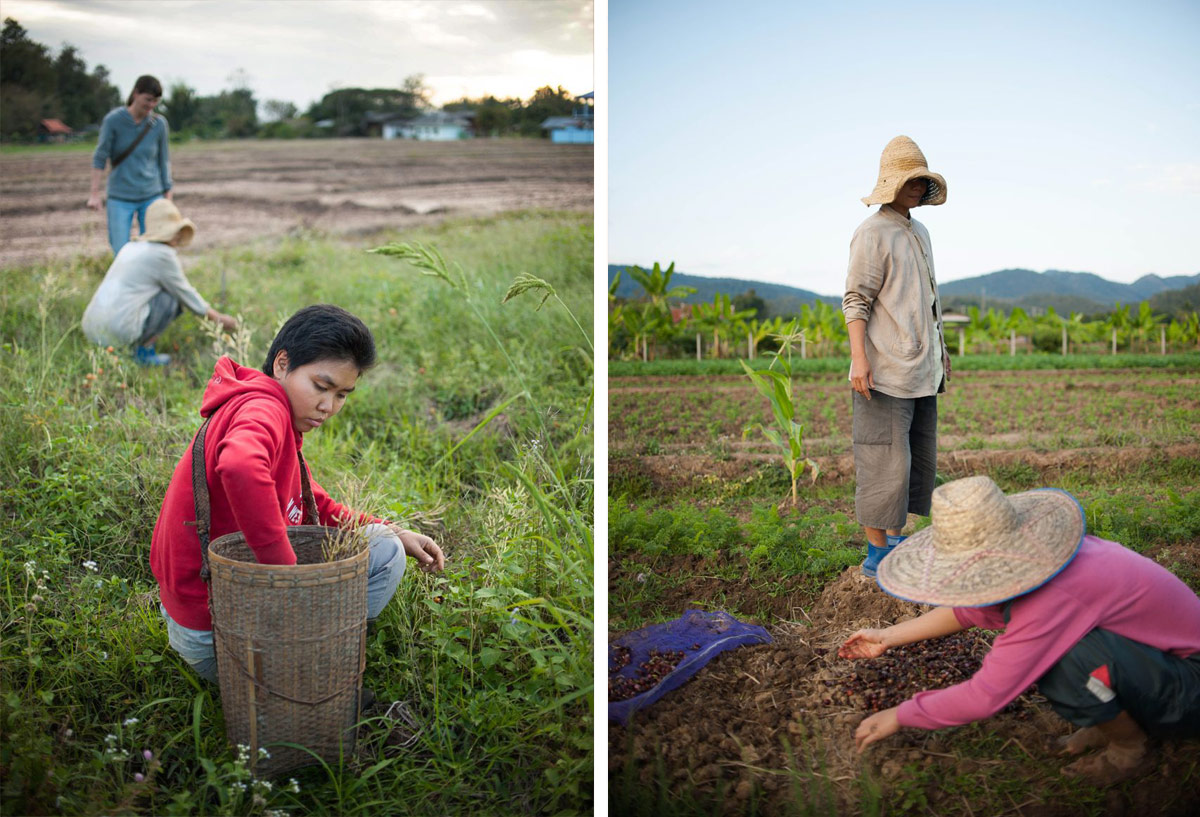
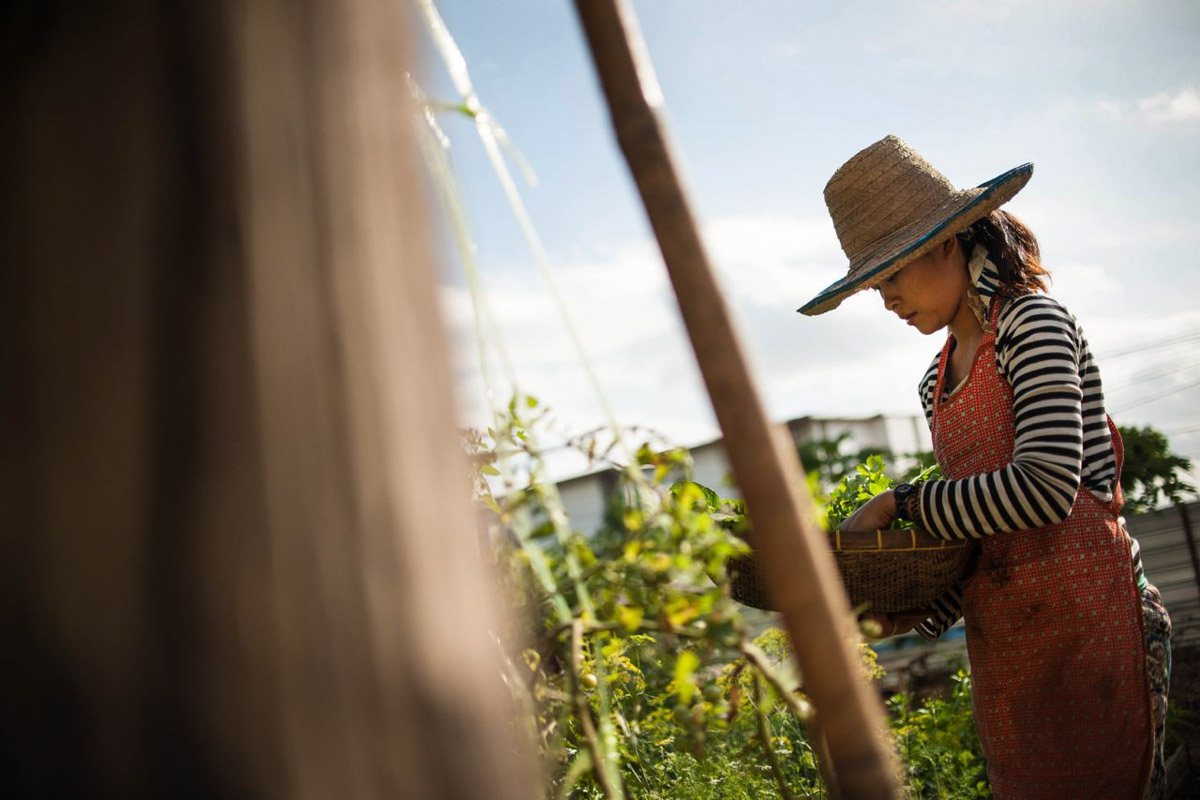
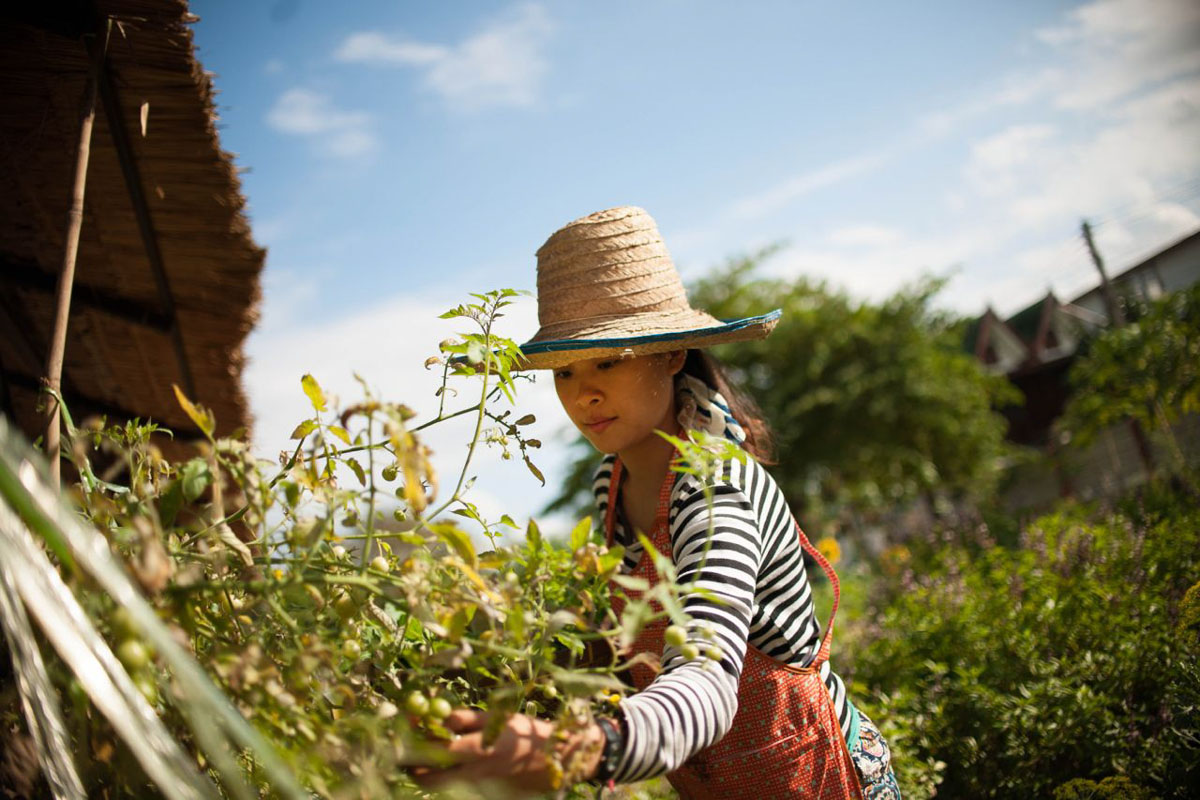
Pun Pun Farms is a sustainable living, learning, and seed center in Mae Taeng province, an hour’s drive north of Chiang Mai. Dotted throughout the forests and fields it provides training and education in self-sufficient living for tourists, travelers, and Thai farmers alike.
As the world becomes ever more globalized and agriculture and agricultural practices get dragged along with it, traditional practices, technologies, and varieties become more and more threatened. Pun Pun and its founder and director Margaret Reents, along with the community that has grown up around it, attempt to push back against this loss by teaching and instructing sustainable living practices.
These include the instruction of adobe and mud brick construction techniques, traditional Thai and Southeast Asian planting and growing practices, as well as fostering a greater connection to the food that is grown and consumed, with an emphasis on how far it travels, how it is grown, and by whom.
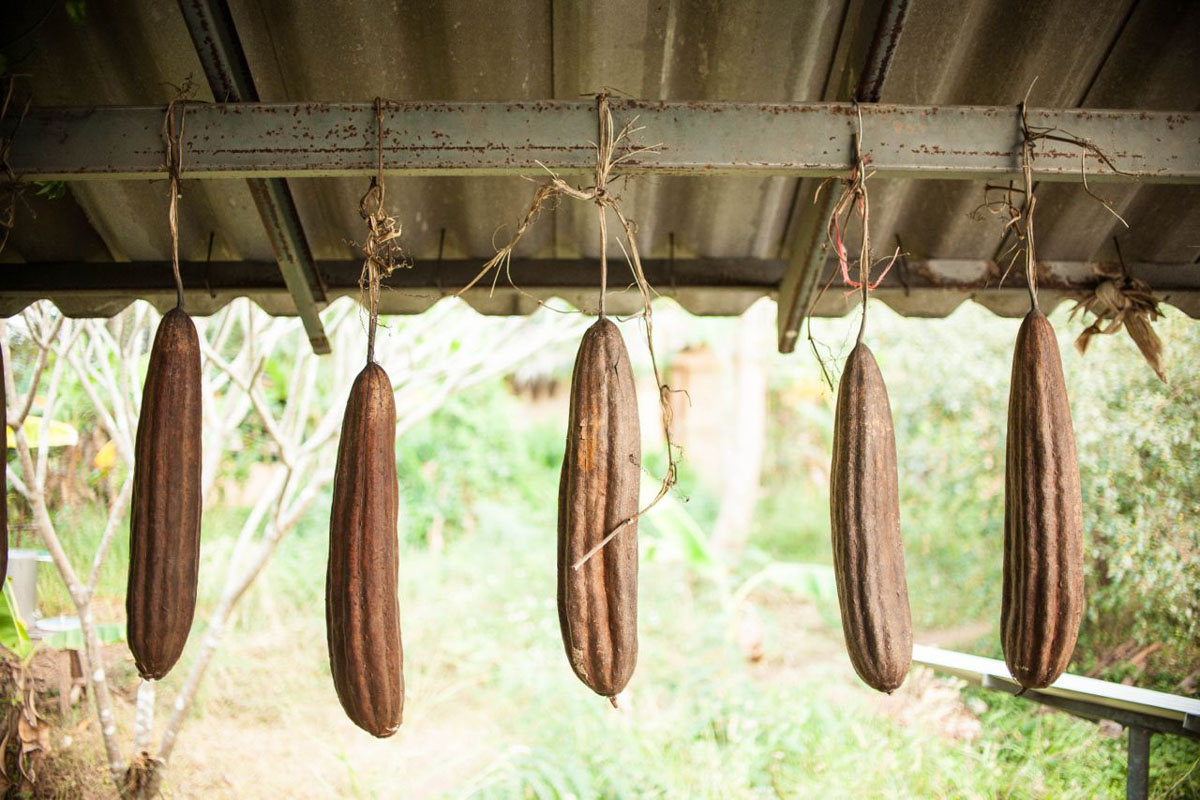
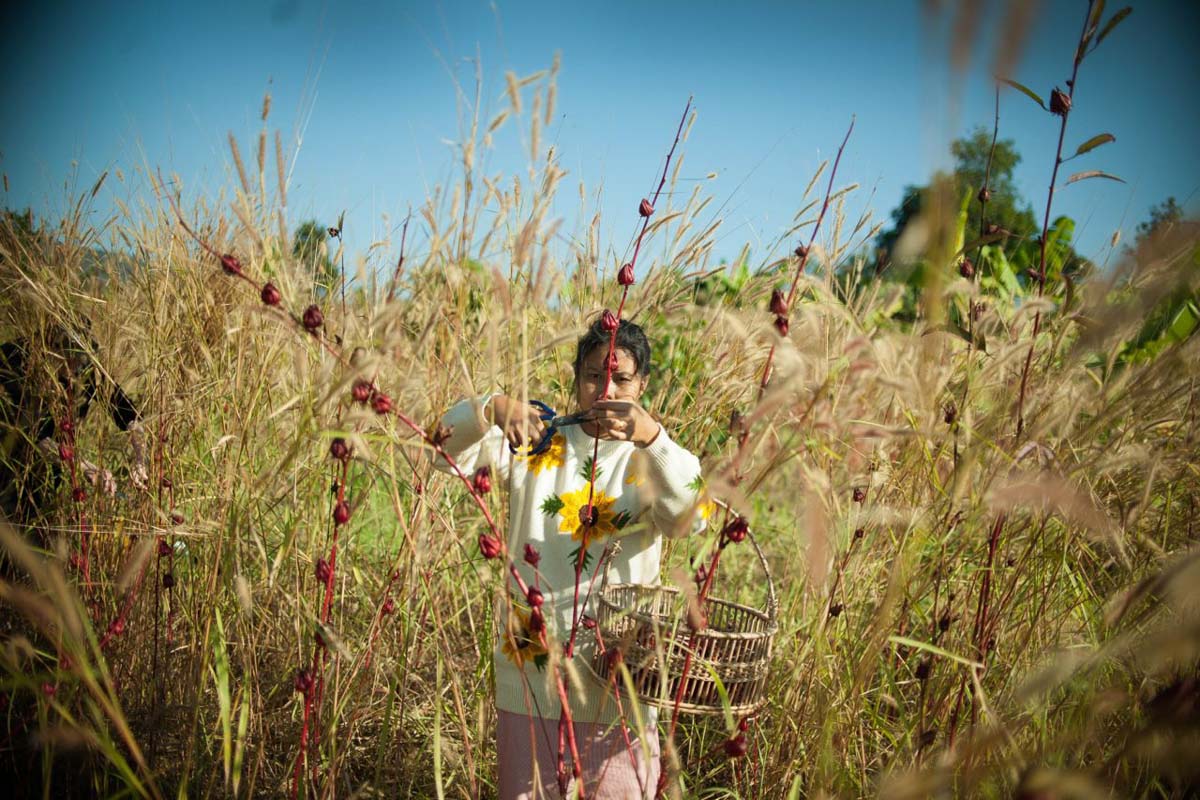
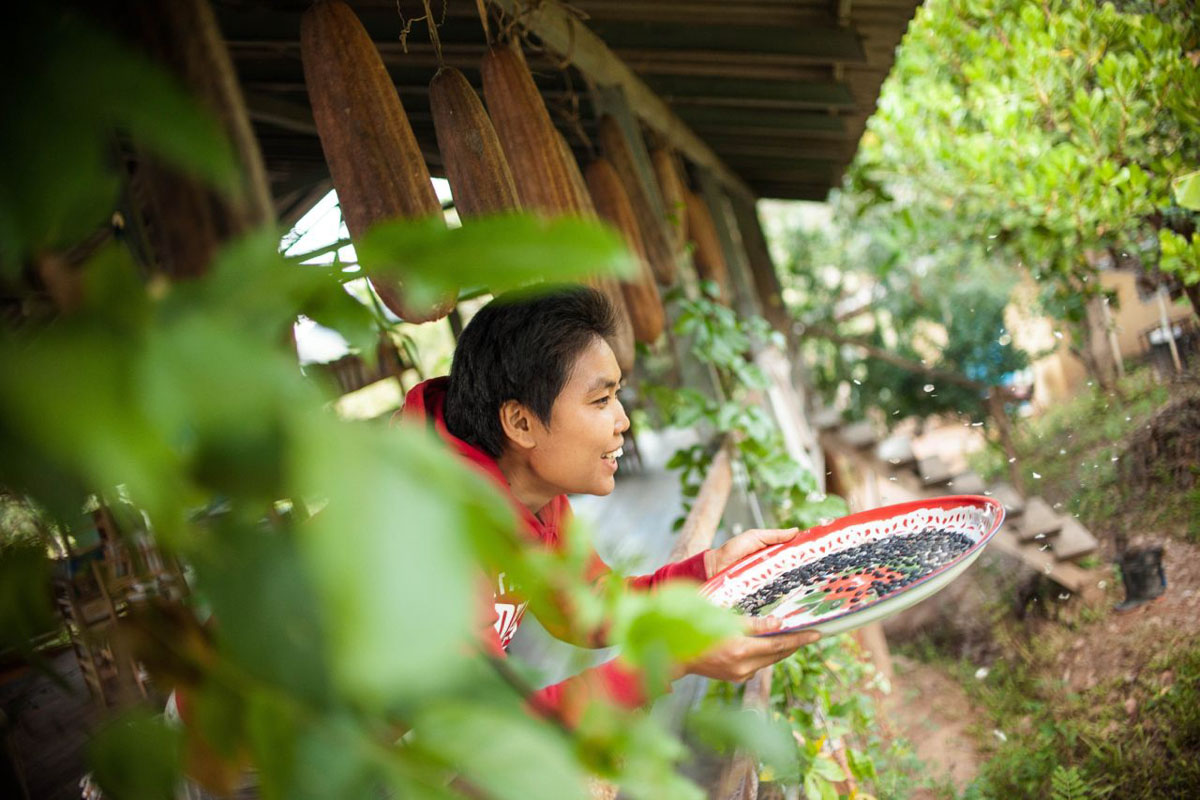
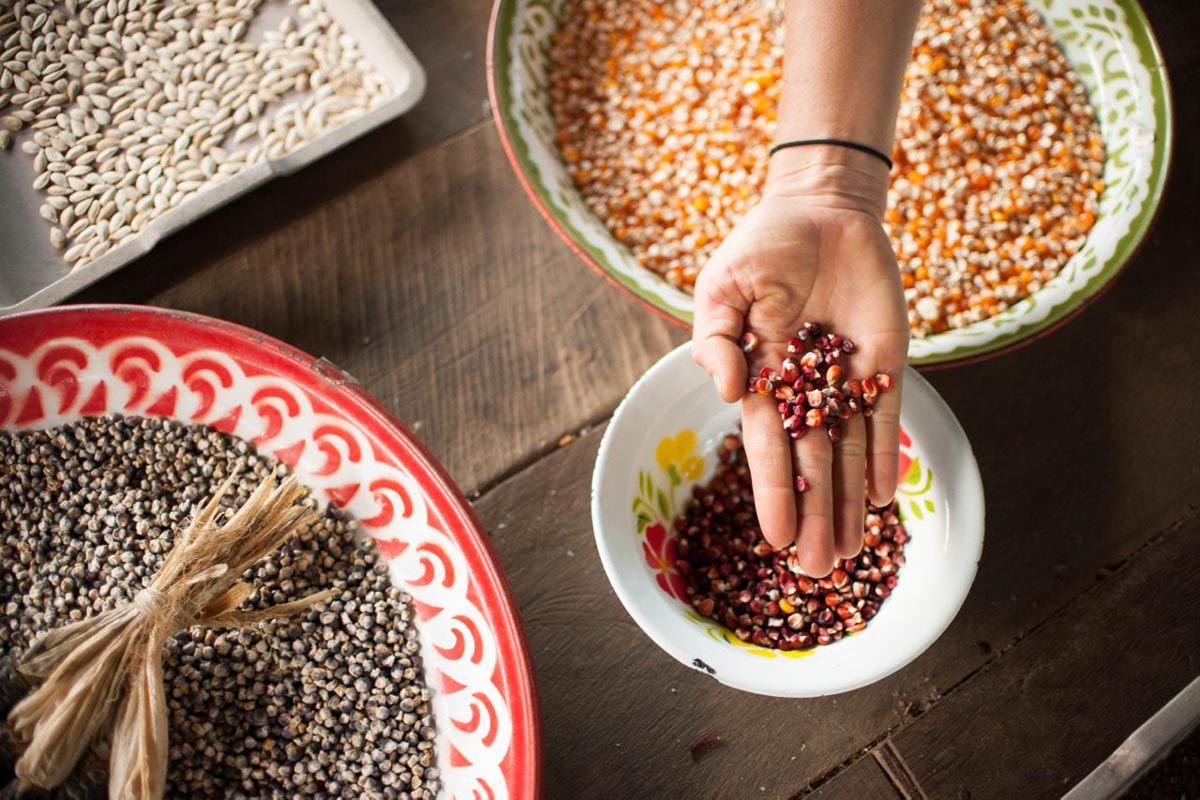
Great emphasis is also placed on maintaining plant and produce variety through the use of their expanding seed bank. Baskets and pots, bags, and Tupperware lay strewn across the top floor of their barn as the hundreds of varieties of seeds are dried and sorted.
The march of mono-cropping and big agribusiness has begun to reach deep into the mountains of northern Thailand, as well as across the country. In response to this they send packaged and organized seed varieties to whoever requests them, free of charge, in an attempt to maintain viable varieties.
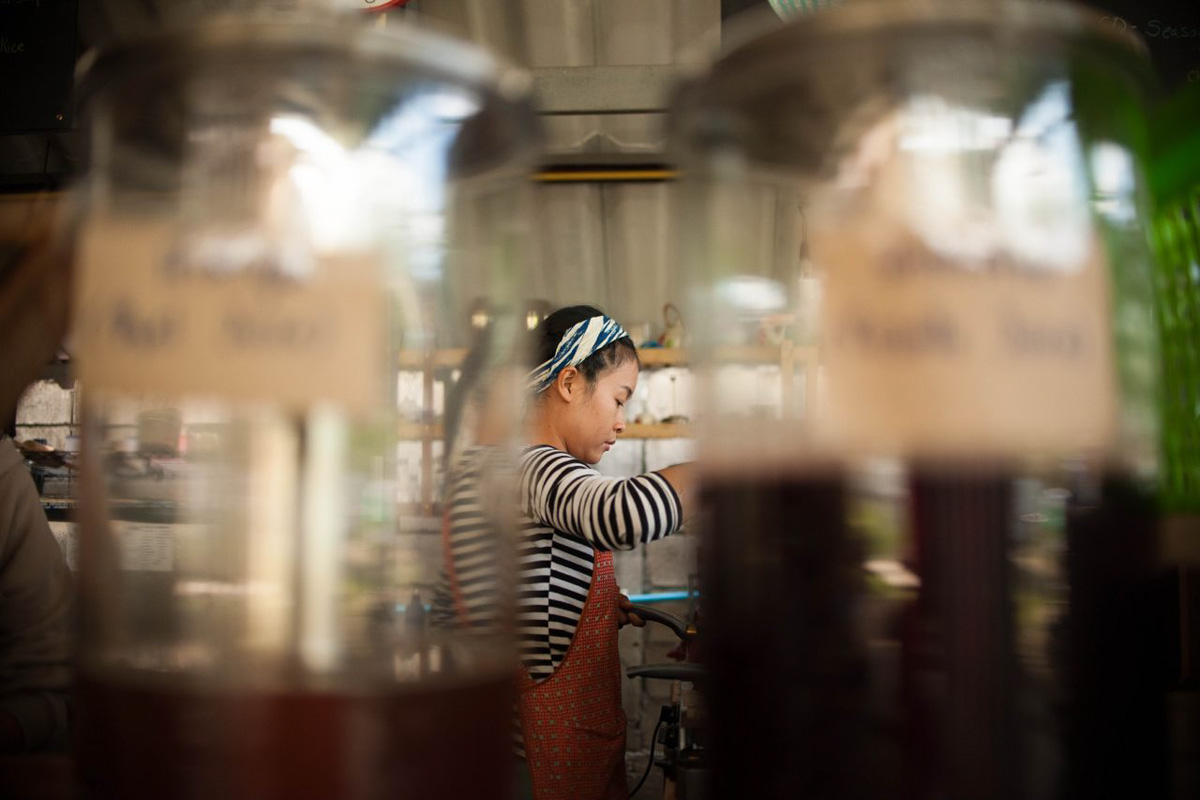
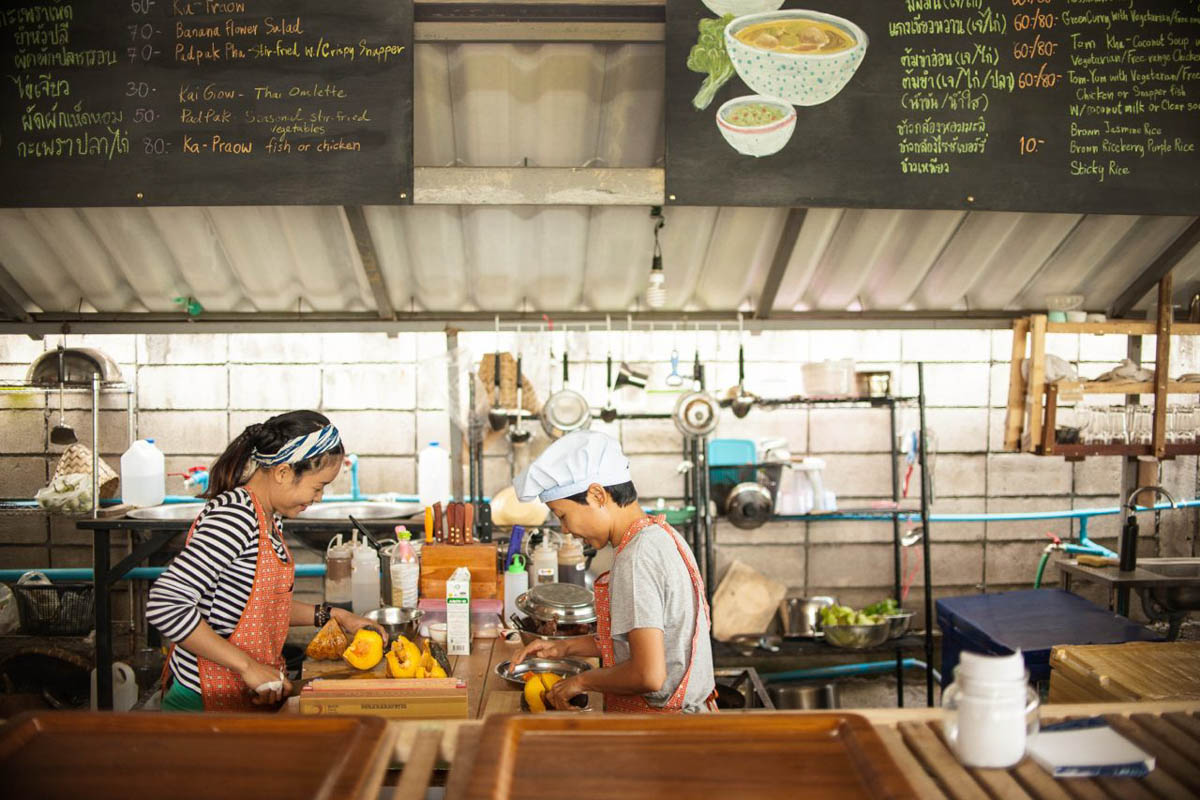
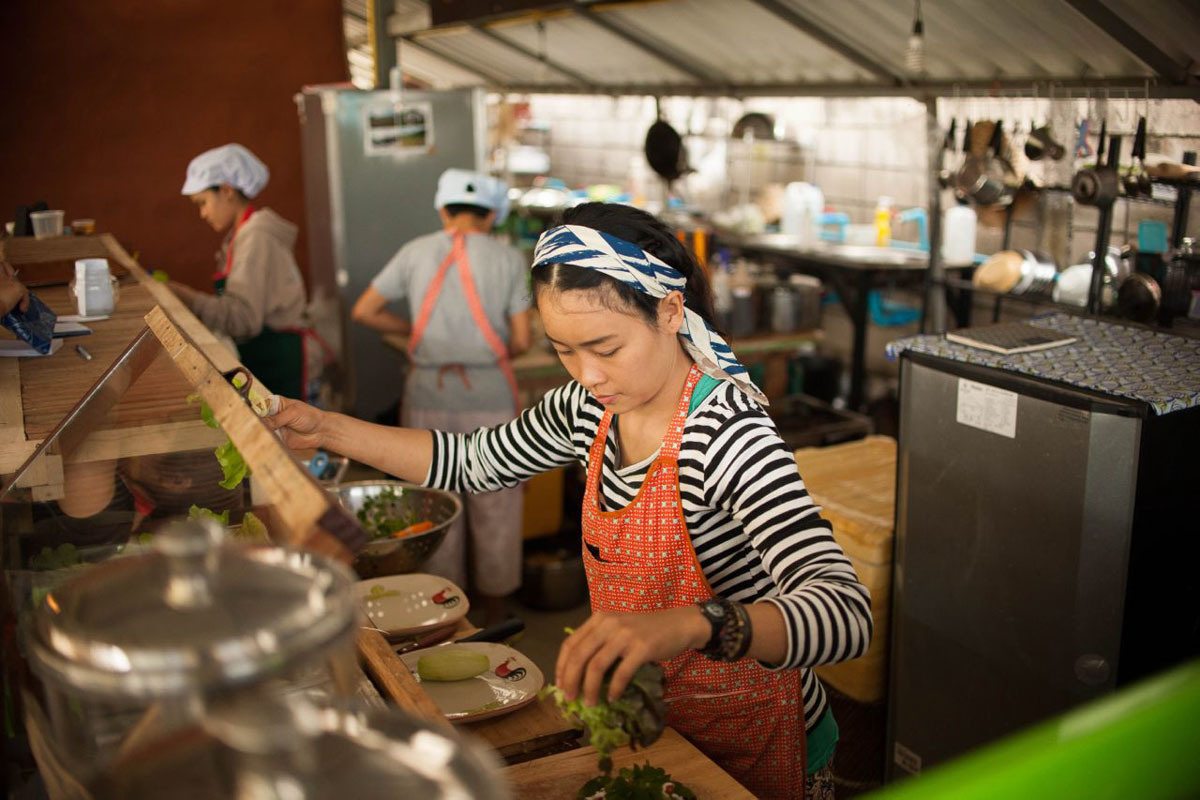
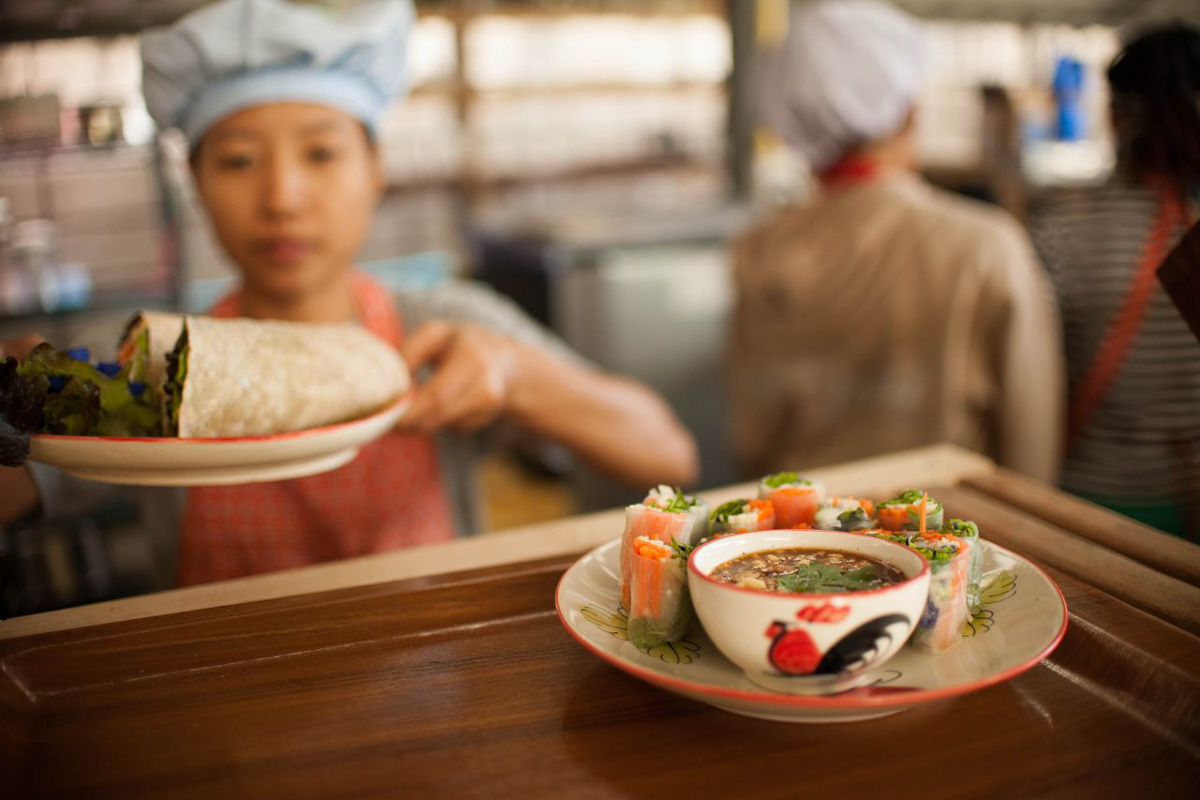
Back in the mayhem of Chiang Mai, tucked behind a factory and a tire dealer, just meters from one of the largest malls in the city, is a lot slowly filling with gardens and produce, this is Pun Pun’s primary restaurant; a physical representation of their goals and practices. Offering organic Isaan and northern Thai meals, and a range of organic products and a coffee. It is the hub of Pun Pun farm in the Thailand’s ‘second city’ and a rare bastion of organic produce in a part of the world where it is only just being introduced.





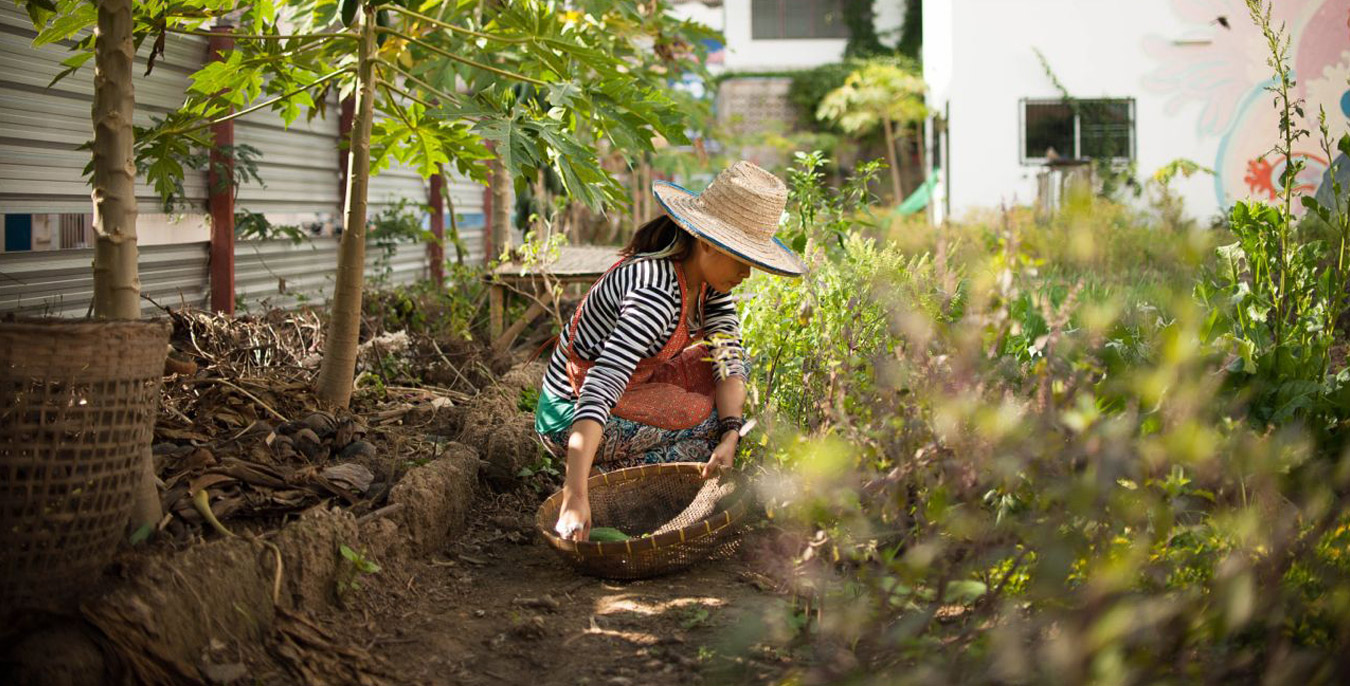

Our comments section is for members only.
Join today to gain exclusive access.